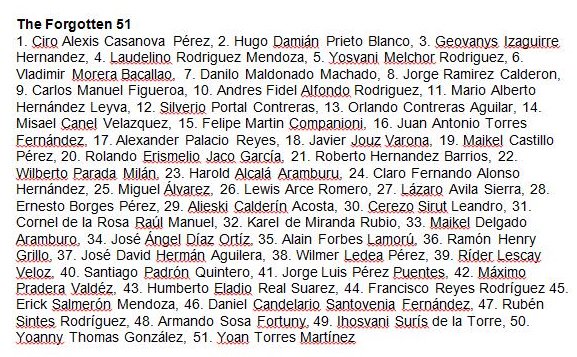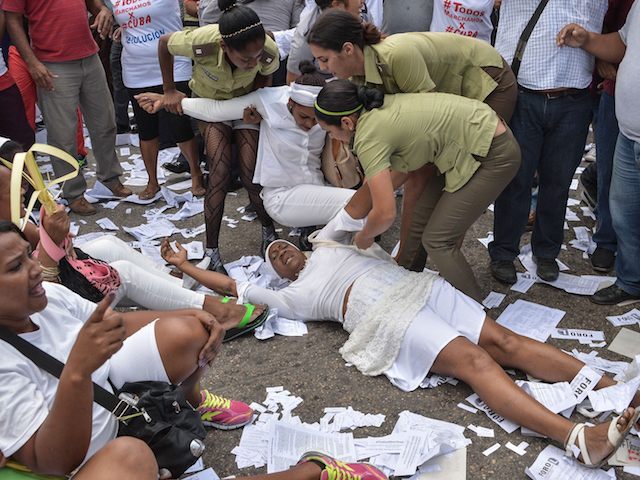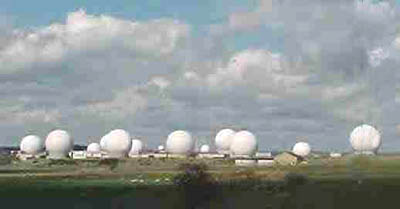IBT: Arizona’s attorney general is raising the alarm about a potential connection between illegal immigration and Middle East terrorism. Attorney General Mark Brnovich said Arizona residents are worried about border security.
“We’ve seen a huge spike in money transfers coming from places like Nogales on the border, to Middle Eastern countries,” he said on Fox Business Network ahead of the Arizona primary on Tuesday. “Arizona is on the front line, and we have seen consequences of what has happened when we’ve had an unsecured, porous border. I mean, frankly, just six months ago there were six folks apprehended from Middle Eastern countries, from Pakistan and Afghanistan, at our border. I know when you talk to the ranchers down there, they’re concerned because they have found coins from Middle East.”After waves of terror attacks in Europe and Africa in recent months, conservative lawmakers in the U.S. have increasingly warned about the threat of Islamic State group militants or other terrorists crossing the Mexico border. But immigration reform proponents have argued that making the dangerous border crossing into Arizona is an unlikely path for terrorists, and many of the Middle Eastern migrants who have crossed are more likely to be refugees fleeing war or looking to connect with family members already in the U.S, International Business Times found.
The Arizona Attorney General’s Office issued a report in early March that highlighted the growing money trail between the Middle East and Mexico. Officials launched the investigation in November after six Middle Eastern men were arrested south of Tucson for illegally crossing the border into Arizona.
The report found that people were sending money to the Middle East from Tapachula, a city in southern Mexico that is known for migrant smuggling, and Nogales, which is just across the Arizona border. In one case, a human smuggler received 69 money transfers from names that were reportedly of Middle Eastern origin, according to local media reports.
“The Southwest border is open despite a lot of claims that it’s more secure,”Neville Cramer, a retired immigration special agent who worked on counterterrorism efforts, told local media about the investigation.
The report did not make any links between the wire transfers and terrorism. But that hasn’t stopped some immigration critics from making that connection.
“I can assure you there are terrorist cells, operating in Central and South America. It is of concern and it’s been a concern of the United States Department of Homeland Security,” Cramer said.
Brnovich said in early March he was feared people with “ill intentions” might try to enter the United States through Arizona.
“Is it because they are being smuggled from the Middle East into the United States? Is it because maybe there are terrorism organizations that involved, either in funding or the human-trafficking trade?” he said.
Brnovich said his office was investigating why money is being sent from the Middle East to Mexico and who is sending money to whom and how often.
“For us to effectively be able to look at where money is coming from and being sent to is so important as a tool for law enforcement,” he said.
**** More reading: U.S. Confirms ISIL Planning Infiltration of U.S. Southern Border
In part from Pew Research, illustrating the World Bank is watching the money and transactions closely.
The number of immigrants in the U.S. doubled from 23 million people in 1990 to 46 million in 2013. During this time, no other country has come close to the number of foreign-born people living within its borders. For example, second-ranked Russia had about 11 million immigrants in both 1990 and 2013 (many of whom had moved within the former USSR prior to 1990). Consequently, the U.S. has bolstered its lead in the number of international migrants, doubling second-place Russia in 1990 and quadrupling it by 2013.
The U.S. has also become a major recipient of migrants from key countries with large numbers of emigrants. Although the U.S. was not a leading destination of migrants born in top origin countries in 1990, things have changed considerably in a quarter century. By 2013, nearly 1-in-6 (2.1 million) migrants born in India—the top country of birth for international migrants in 2013–lived in the U.S. Almost the entirety of the 13 million migrants born in Mexico–the second highest country of birth for international migrants in 2013—also lived in the U.S.
And the U.S. is the top recipient of migrants from about a quarter of the world’s countries. In 1990, the U.S. was the top destination of migrants born in 53 countries. In 2013, that number was about the same at 52 countries.
**** The report targets 2013, but in the last 2 years the trend is exploding due to Barack Obama’s policies.




 Bejucal
Bejucal